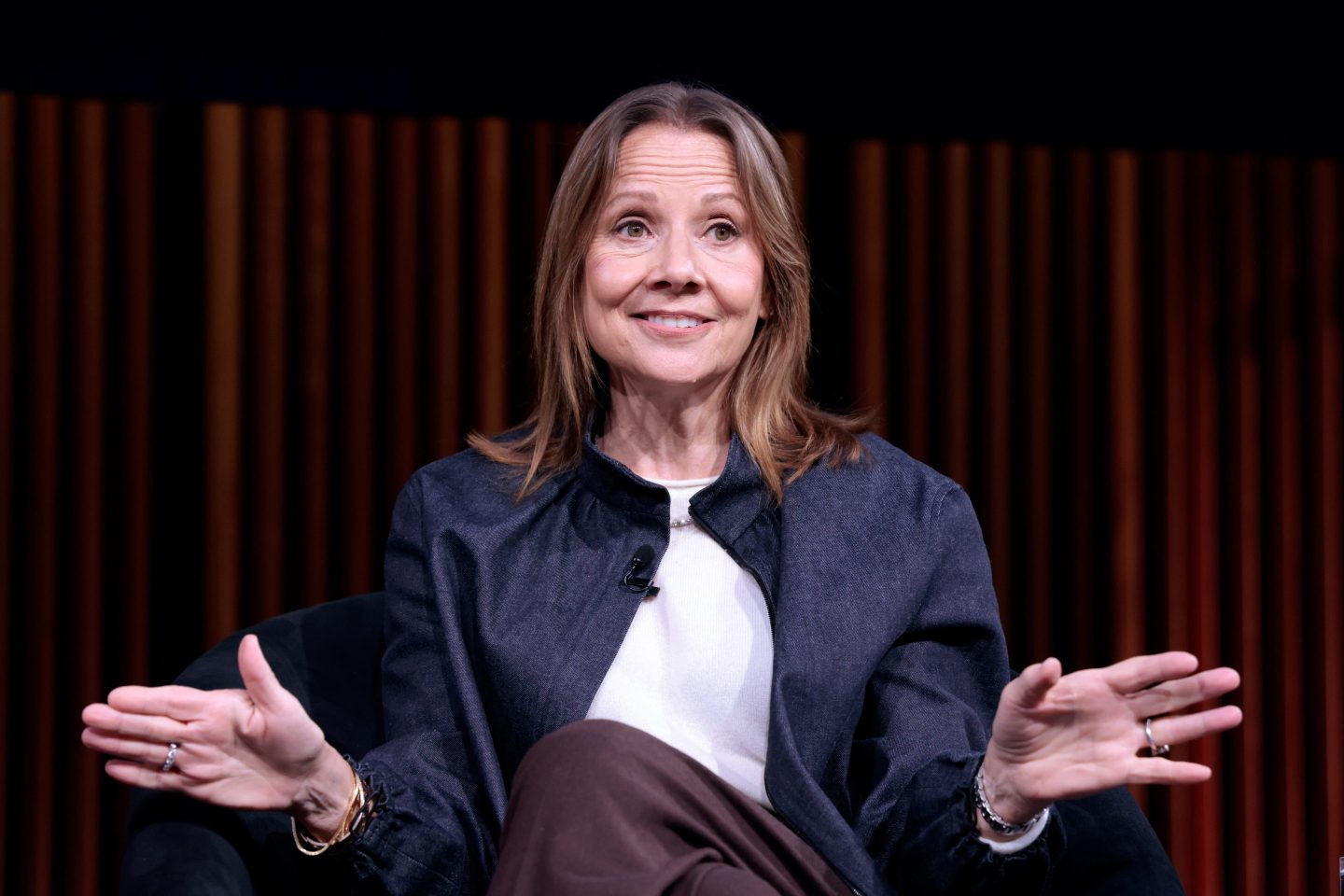Good morning. Microsoft cofounder Bill Gates made headlines late last month when he predicted that AI would lead to humans working just two days per week in a decade’s time.
Predictions of increased leisure time afforded by technology have been around for generations, but today, it seems we’re plugged in more than ever—at least here in the U.S.
So, pop quiz time: How many hours long is the workday for the average American thanks to the multitasking that today’s technology allows? (Hint: The answer can exceed how many actual hours are in a day.)
Take a guess, then find the answer in “Endstop triggered” below. Have a wonderful weekend. —Andrew Nusca
P.S. Run, don’t walk, over to Fortune dot com to read colleague Sharon Goldman’s profile of Greg Brockman, OpenAI’s “builder in chief.” It’s a peek into the life of someone tasked with moving fast and breaking things…including the laws of physics, apparently.
Want to send thoughts or suggestions to Fortune Tech? Drop a line here.
Tesla shareholders approve $1 trillion pay package for Elon Musk

Tesla investors on Thursday approved a new compensation package for Elon Musk that could allow the CEO to earn up to $1 trillion worth of company stock.
That kind of payday—at a time when the compensation gulf between the C-suite and regular employees is staggering—has proven controversial, except among Tesla investors: Three in four favored the proposal.
Wedbush analyst Dan Ives, a longtime Tesla bull, called Musk “a wartime CEO as the AI Revolution takes hold.”
The world’s richest man will have to meet several goals to earn his 423 million share reward. Among them: Shipping 1 million Optimus humanoid robots, launching 1 million robotaxis, and lifting Tesla's market capitalization to an eye-watering $8.5 trillion.
(Tesla’s market cap is $1.40 trillion today. The first company to break the $5 trillion ceiling, Nvidia, only briefly did so last month.)
Money aside, the Tesla shares will give Musk more than 25% voting control over the company. The CEO said last month that he “need[s] enough voting control to give a strong influence, but not so much that I can’t be fired if I go insane.” —AN
U.S. agency hacked by 'suspected foreign actor'
The Congressional Budget Office says it’s been hacked.
By who? The CBO won’t say—though a Washington Post report says it was the work of “a suspected foreign actor.”
Whoever the perpetrator, it means important government data may have ended up in the hands of the bad guys—just the kind of detailed information you’d want if you were, say, mounting a large social engineering scheme.
With fewer than 300 employees, the CBO isn’t a large federal agency. It produces a cost estimate for almost every committee-approved bill and is an essential resource for lawmakers seeking impartial analysis of proposed legislation.
The agency “has identified the security incident, has taken immediate action to contain it, and has implemented additional monitoring and new security controls to further protect the agency’s systems going forward,” a spokesperson said in a statement. —AN
Take-Two delays the release of 'GTA VI' again
Gamers will have to wait even longer for Grand Theft Auto VI.
The latest installment of the popular game series was originally due right about now. Then it was pushed to May 2026.
Now, according to its maker, Take-Two Interactive, it won’t arrive until November of next year.
(To paraphrase a memorable quote from a vintage GTA title: All we had to do was ship the damn game, CJ!)
Sad players aside, continued delays are a substantial business problem for Take-Two, which hopes and expects GTA VI to be one of the biggest moneymakers it’s ever launched.
How big is big? Konvoy Ventures said in May that it believes the $2 billion title will break even in one month and gross $7.6 billion in two months.
In the wake of the delay news, the company’s shares dropped almost 10%, to $228, before recovering slightly. —AN
More tech
—U.S. may block key Nvidia chip sales in China. The scaled-down “B30A” AI chip won’t receive a White House nod, per a new report.
—Meta’s 2024 projections show that 10% of its revenue would come from ads promoting fraudulent goods or services.
—Airbnb offers sunny Q4 outlook. The travel company expects revenue of about $2.69 billion, slightly above analyst expectations.
—OpenAI CFO walks back comments. Sarah Friar initially said a government “backstop” would help the AI company’s infrastructure commitments.
—Amazon tests AI-powered book translation. “Kindle Translate” will be used for self-published books.
—Affirm shares jump 11%. The fintech firm reports a 34% increase in quarterly revenue from a year ago, to $933 million.
—Anti-digital piracy measures are hurting digital trade, Cloudflare says.
Endstop triggered

Answer: 32 hours.
While Trey-Rock leisurely mulls the future of the planet in his longtime Xanadu 2.0 compound outside of Seattle, the rest of us are pulling triple shifts—at least in terms of brainpower.
According to Activate Consulting, the rise of multitasking has led to a 32-hour (!) day for the average American, with more than 13 hours spent using technology and media. (And sadly, not quite seven hours on sleep.)
It will get worse before it gets better. The consulting firm expects that total to grow by 15 minutes before the end of the decade.
The good news—at least for business—is that the best multitaskers spend, engage, share, and advocate more than everyone else.
The bad news? Today’s attention spans couldn’t bridge two transistors on an AI chip.
…sorry, what was I saying again? —AN












